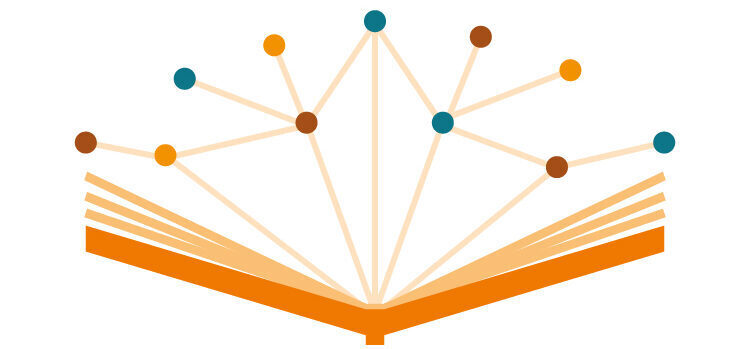
IN THIS ISSUE
Message from the Chair – Dr Sally Baker
Message from the Newsletter Coordinator – Dr Rachel Burke
The Making Connections Mentoring Program – The Making Connections Team
Improving Graduate Outcomes Through CareerSeekers – Carolyn Sykes
My Story – D.W
Future Leaders or Lost Possibilities? – Jude Stoddart
Message from the Chair
By Dr Sally Baker
sally.baker@unsw.edu.au
Dear colleagues
Welcome to our first newsletter of 2021! While not as bumpy as 2020, this year has offered plenty of challenges and opportunities. The challenges can be seen in the constant pressure on the advocacy space, with the recent budget confirming the sustained drop in the annual humanitarian migration quota and legislation that has made it legal to detain refugees indefinitely. These kinds of policy and funding decisions are disheartening to the max, and remind us of how important our advocacy – joining with other voices – for fairer and kinder refugee policies is. In addition, the challenges that the education sector face – specifically the underfunding of public schooling, TAFE and universities – means that we are working under tremendous pressure. It’s important to acknowledge these challenges, because they are the backdrop against which we work and they sap our already low energies.
However, it’s not all doom and gloom – there are always opportunities and silver linings to be found amongst the doom. At RESIG, we have been busily working on creating resources and events to make our advocacy reach even further and nourish our need for connection. Earlier this month, we co-launched the Australian Research on Refugee Integration Database (ARRID), which is an open-access database of over 2000 research items, with the Social Equity Institute at the University of Melbourne. Skilfully coded to Ager & Strang’s foundational integration framework by the amazing Louise Olliff, and built to be an accessible database on our website by the wonderful John Tran, ARRID is a game-changer that will (hopefully) make policy-makers’ work easier for them, as well as being a great resource for researchers, educators, and NGOs around Australia. Along with our annotated bibliography, these are all part of what we are calling a ‘liberation bibliography’ approach (borrowing liberally from Barbara Fister’s work – read more here). We know colleagues in Canada and Europe are thinking about building similar databases, which is a brill testament to how RESIG is helping to push boundaries with regard to sharing powerful information and creating policy advocacy tools!
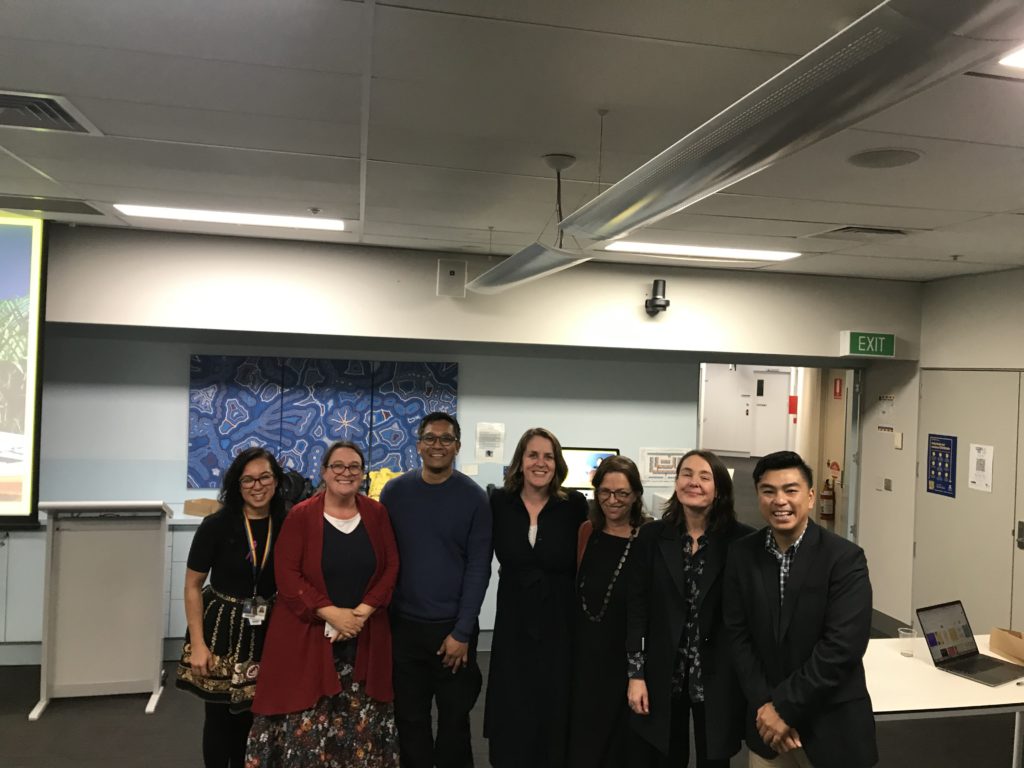
We have also started a series of events, such as our monthly reading groups and our postgraduate Work in Progress seminar series, which was convened in March. These events are so important for our continual coming together to share and learn alongside each other. In June, we will host a panel for World Refugee Day, talking about partnerships that lead to positive educational change for refugees (register here) and on 5th July we will be co-hosting a side event to this year’s Refugee Alternative conference with the Education for Social Justice and Inclusion group at WSU. Titled ‘Innovative pedagogies for reconnection’, we hope to bring school, TAFE and university educators together to learn from school teacher with regard to best practice teaching strategies for working with refugee students. We will be hosting this in person and online, so please join us (click here to register)!
On the advocacy front, we have been active in considering options for a higher education complementary pathway, working with Community Refugee Sponsorship Initiative and Amnesty International to advocate for a revised community sponsorship policy, which would permit universities to develop similar pathways to the Canadian Student Refugee Program. We are also working on an idea to create a similar scheme to the UK’s Universities of Sanctuary… watch this space for more information!
We want to thank you for your continued participation and support of RESIG – we are always looking for fresh perspectives and energy so if you want to get more involved, get in contact with us at: contactus@refugee-education.org!
Sally (on behalf of the RESIG Steering Committee)
Message from the Newsletter Coordinator
By Dr Rachel Burke
rachel.burke@newcastle.edu.au
It is always a privilege to curate the RESIG newsletter. Contributors’ stories and updates provide important insights into lived experiences with displacement and resettlement, efforts to support pathways to education for all people, and ongoing questions and concerns impacting the field.
In this issue, contributors from a range of contexts generously share their stories and updates, offering powerful illustrations of the impact of education and the many different programs in place to support access and inclusion. These contributions also illustrate ongoing issues related to participation in education for many people with refugee experiences. I would like to extend my warmest thanks to each contributor for sharing their experiences and insights. Your contributions are greatly appreciated.
We hope that the RESIG newsletter, like the SIG itself, will be a source of information, support, and community for all members. Please contact newsletters@refugee-education.org if you would like to contribute to an upcoming issue. Given our August event exploring the Ethics of Research in ‘Fragile Contexts’ (Fox et al, 2020), we are inviting newsletter contributions regarding the navigation of ethically complex settings, such as education, research, and advocacy in displacement and resettlement contexts. Please reach out if you would like to discuss a possible contribution to this theme. As always, contributions about lived experiences, news, events, programs, and other issues relevant to the RESIG agenda are also welcome.
Thank you again to the contributors who have taken the time to share their stories in this issue of the RESIG newsletter. Take good care everyone.
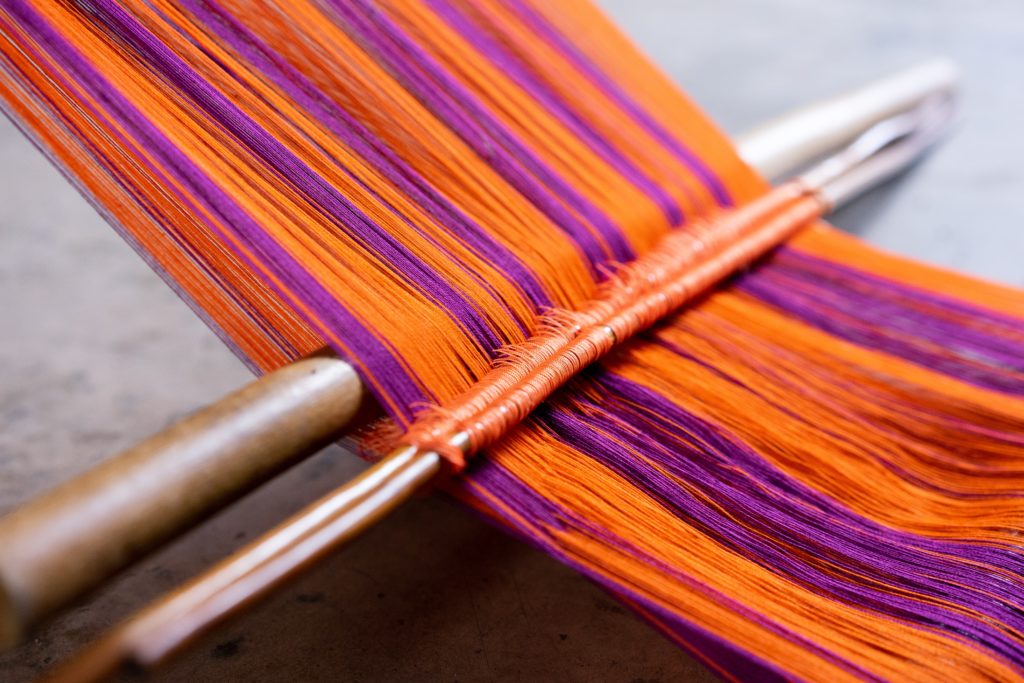
The Making Connections Mentoring Program
By The Making Connections Team
Making Connections is a mentoring program at Macquarie University that links academics with students from refugee backgrounds to enable them to develop a sense of belonging and succeed at university. Evidence from running this initiative for the past four years suggests that academic mentoring is effective at connecting this cohort with academics and increasing their sense of connection and confidence at university. Other equity groups at Macquarie University and University of Technology Sydney have already developed similar mentoring programs based on the Making Connections framework.
Improving Graduate Outcomes Through CareerSeekers
By Carolyn Sykes
carolyn.sykes@careerseekers.org.au
CareerSeekers is a non-profit social enterprise supporting humanitarian arrivals to establish and recommence their careers in Australia. The CareerSeekers program supports two unique groups of participants, through paid internships:
- University students who intern during their holiday breaks in an effort to learn about the Australian workplace, link their studies to practical experience and develop relationships with industry mentors.
- Mid-career professionals who have tertiary qualifications and professional work experience abroad. An internship enables them to restart their careers in Australia and establish their professional networks.
The program provides participants with a proven methodology of support and training to re-settle faster into Australia, and with stronger self-determination. We work with universities, community groups and settlement agencies across Australia and link suitable participants to professional internship opportunities.
We work with employment partners in a range of industries across Australia to provide structured internships for participants in our university student stream during their summer and winter university holiday breaks. Students are part of the program throughout their degree and core to the program is also wrap around professional development opportunities. Importantly, we support students to leverage the experience gained through the program to successfully transition to professional employment upon graduation.
Raneen’s story
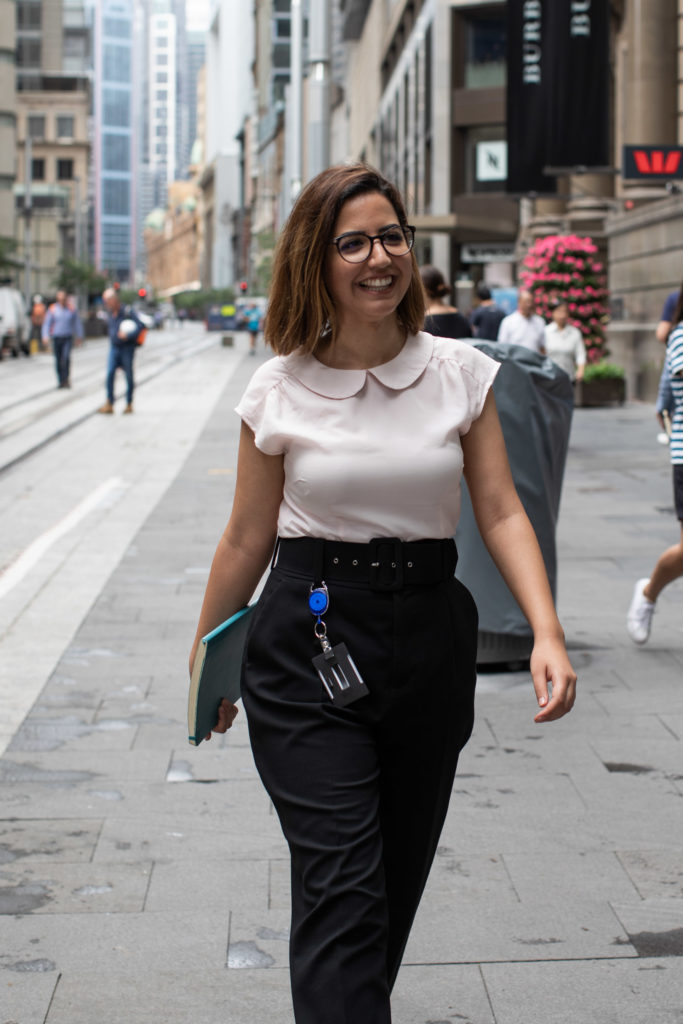
Raneen Yaseen learned her life was forever changed when she was just 10 years old living in Bagdad, Iraq as the war was intensifying. “My family and I then moved between different cities to try and find a safer home, until finally in 2014 we had to flee from Iraq,” says Raneen.
At this stage, Raneen was in her third and final year of a Mechanical Engineering degree at Salahaddin University – Erbil. Raneen lost her home, family, and education, and fled to Turkey for three years until she finally re-settled in Australia. With her previous education not being recognised locally, Raneen’s several attempts of restarting university were rejected until finally being accepted into a Mechanical Engineering degree at Western Sydney University.
Through the support of CareerSeekers, Raneen began interning with Lendlease in 2018, primarily working on the Lendlease Samsung Bouygues Joint Venture delivering the mainline tunnels of the WestConnex M4-M5 Link project. Raneen returned every winter and summer break since.
“Moving to a new new country with a different language and culture isn’t easy, but what in life is easy? I know my future is bright,” says Raneen.
Raneen graduated with Honours in 2020, and has joined Acciona (following their purchase of Lendlease Engineering) and is looking forward to building her career as a Mechanical Engineer.
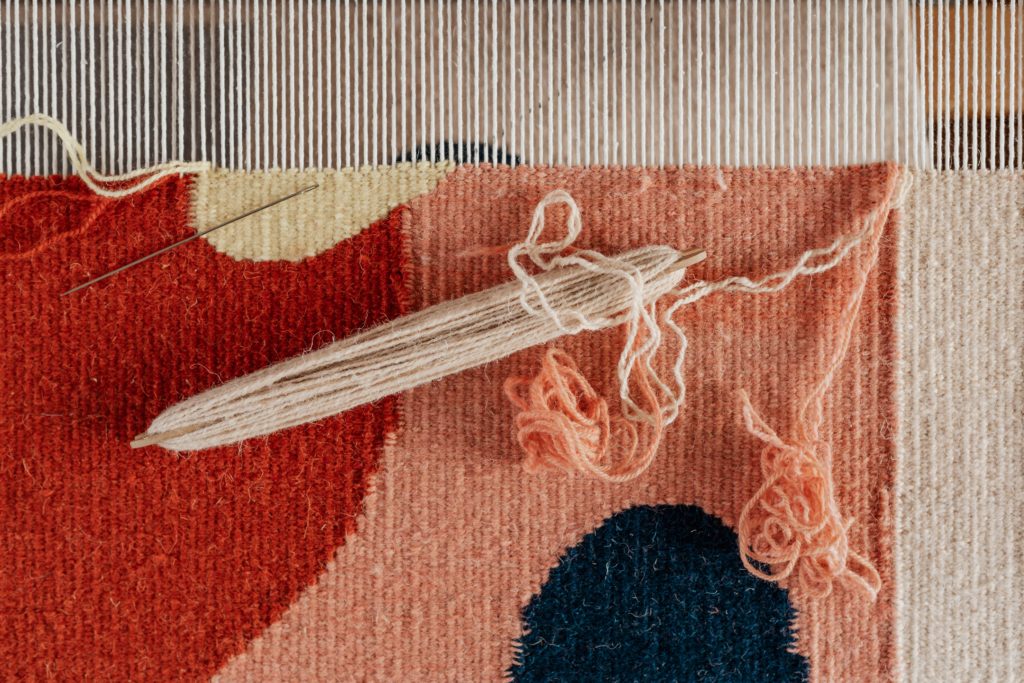
My Story
By D.W
I arrived in Australia by boat in 2013 from Afghanistan seeking asylum as an unaccompanied 17 year old. I am now 25 and am currently on a Safe Haven Enterprise Visa. I’ve studied and worked independently since my arrival. Now I work as a financial consultant for a multi-national consulting firm.
Here is my story.
On arriving in Australia in 2013, after months of hard work, I obtained a scholarship from one of Adelaide’s most prestigious private high schools. Throughout my high school journey, I accomplished much, including writing a book in two languages, being presented with various academic awards such as the Dux award in Mathematics, the Principal’s award and the Collegian (Palma Merenti) award.
In 2017, I won a Scholarship from one of Australia’s top 8 universities, where I majored in accounting and finance (with a weighted average mark of Distinction).
Being a full time student, living without any family support, I worked around 25 hours a week to not only pay for my own living expenses, but also to help my family back home. This has been incredibly challenging for me over the past years.
While studying and working full time, I also completed an accounting training course. Through this course, I have gained an extensive insight into the accounting field and developed an understanding of the use of practical accounting and finance in the real world.
Furthermore, through my various voluntary roles I have been actively developing my leadership, communication, relationship building and interpersonal skills. From the time I first arrived in Australia to where I am now, I have demonstrated my energy, tenacity, resilience, creativity, problem-solving skills, independence and a thirst and passion for both personal and professional growth.
I live in the hope for the Australian Government to grant me Permanent Residency and Citizenship so I can rejoin with my family after 8 years and also be certain of a safe and peaceful future whilst contributing to the Australian community, economy and civil society.
Future Leaders or Lost Possibilities?
By Jude Stoddart
Jude.Stoddart@asylumseekerscentre.org.au
Huge thanks to all of you in Universities who have managed to keep some asylum seekers scholarships funded, despite the financial constraints in the sector! Thanks to your efforts volunteer Education Advisors at the Asylum Seeker Centre, Newtown, Sydney (ASC) assisted another five young students seeking asylum to successfully navigate course and scholarship processes and gain access to university this year. They are joining the other fourteen uni students seeking asylum that ASC has assisted over the last few years; two of whom graduated last July with degrees in Medical Sciences and Accountancy.
This leaves me with the question what will happen to all these young skilled and talented people – the scientists, doctors, teachers, lawyers, speech therapists, engineers and IT professionals? Their skills are valued and are much needed by our society, but how many of them will be ‘lucky enough’ to practice their profession and live here? Their chances of gaining protection seem to be a lottery with the odds increasingly stacked against them. Many of them will have come here as children, or young teenagers, and have grown up and become young professionals in this culture. Yet it seems the decision about whether they have a future here rests on their parent’s initial visa application. The judgements on those applications are made by relatively privileged people based on their perceptions of moments of history that took place worlds away and often years ago. Given a different context, these young people would probably be the pick of any skilled migration program (that must have unfilled places, given the closed borders). I am keen to hear from anyone doing work on these issues and whether there are opportunities for accessing different visas for this growing number of young adults who would be a credit to any society.
